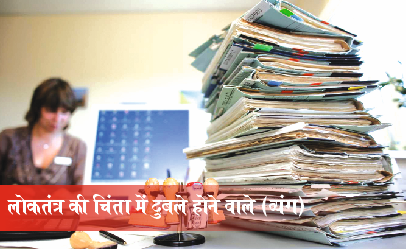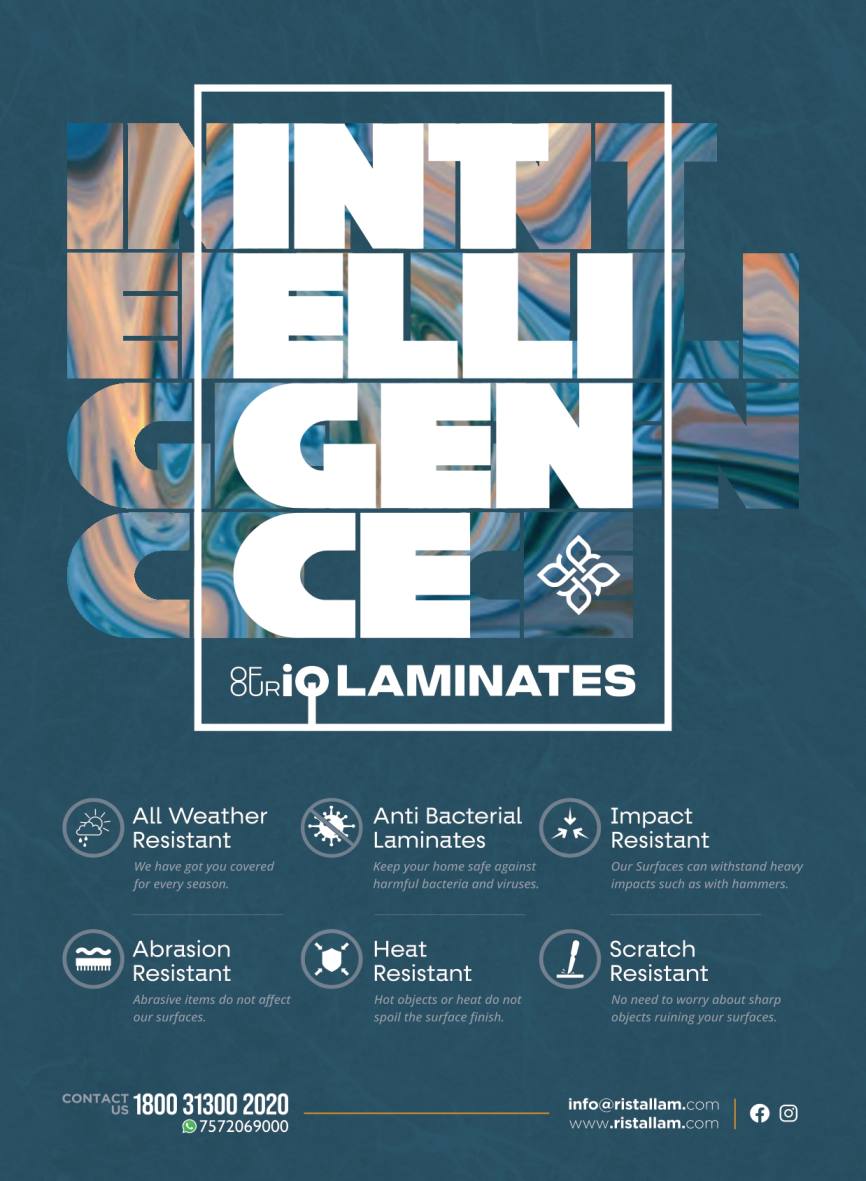Macroeconomics is no longer good enough
- नवम्बर 25, 2021
- 0
Given the kind of changes we are seeing today in technology, business models, society, and geopolitics, and given the challenges we face on every front (terrorism, climate change, elite wokism, et al), the world is simply too complex for economists to comprehend in real time. Their theories are outdated and not very useful for policymaking in a period of flux. It will fail because the real economy needs multidisciplinary advice and insights from different players, including businessmen, technology players, climatologists, and sociologists, among others.
Let’s be clear. Babus and economists do not have the foggiest notions on where an economy is headed, nor, for that matter, do they have the right tools to do something about it with blunt fiscal or monetary policy instruments. Real competence in understanding the real economy in real time lies increasingly with businessmen and technocrats, who can use artificial intelligence and other tools to forecast collective human behaviors. If we wanted to know what is happening in the world economy, or even the Indian one, would we trust the Prime Minister’s Economic Advisory Council or Google’s or Amazon’s algorithms? In our policy advisory council, should we have experts from these kinds of companies or economists alone?
Often, the intuitive understanding of an insightful individual can be as good as that of a busload of experts. Steve jobs’ big insights on what kind of products to build came from personal intuitions, not market research.
For one, economists have much to be modest about, and the assumption that economics can explain human behavior through mathematical models or phony theories is seriously flawed. This is because the key to understanding larger economic outcomes lies with understanding what individual economic units and components of society will do, and not all these things are driven by economic logic. Man does not live by bread alone, and assumptions about economic rationality are outdated.
Secondly, the best way to understand economic realities and options is understand parts of the economy and what creates or curtails demand, you will know more about what you need to do on many related policies (infrastructure, etc).
Developing expertise on multiple parts of the economy is needed so that we get a better understanding of the whole. The world is too complex for us to leave it to the understanding of experts and economists alone.
India has benefited somewhat from having a prime minister who looks at economic advice as an optional extra. Most of his policies and schemes are the result not of expert advice, but his own intuitive understanding of the pain points of individuals, society and business enterprises. He has made mistakes, even big ones, but he has the ability to correct them or turn them to advantage (example: turning demonetisation’s negative into a digital plus).
वृहद अर्थशास्त्र की समझ नहीं पर्याप्त
आज हम तकनीक, कारोबारी मॉडल, समाज और भूराजनीति में जो बदलाव देख रहे हैं और आतंकवाद तथा जलवायु परिवर्तन समेत तमाम मोर्चो पर जो चुनौतियां हमारे सामने हें, उन्हें देखते हुए कह सकते हैं कि दुनिया अर्थशास्त्रियों के समझने की दृष्टि से बहुत जटिल है। उनके सिद्धांत पुराने हो चुके हैं और वे मौजूदा दौर के नीति निर्माण की दृष्टि से उपयोगी नहीं हैं। वह इसलिए नाकाम होगी क्योंकि वास्तविक अर्थव्यवस्था में कारोबारियों, तकनीकी कारोबारी, जलवायु के जानकारों और समाजशास्त्रियों की ओर से कई तरह की सलाहों और अंतर्दृष्टि की जरुरत पडती है।
एक बात साफ है। अफसरशाह और अर्थशास्त्रियों को इस बारे में रत्ती भर भी अंदाज नहीं होता है कि अर्थव्यवस्था किस दिशा में जा रही है उन्हें यह भी नहीं पता होता कि इसे सही रखने के लिए किन उपायों को अपनाने की आवश्यकता है। वास्तविक अर्थव्यवस्था की सही क्षमता को तत्काल समझने के लिए कारोबारियों और तकनीकविदों का साथ आवश्यक है। वे कृत्रिम मेधा तथा अन्य उपायों की मदद से मानव व्यवहार के बारे में अनुमान जता सकते हैं। यदि हम यह जानना चाहे कि विश्व अर्थव्यवस्था में या भारतीय अर्थव्यवस्था में क्या घटित हो रहा है तो हम प्रधानमंत्री की आर्थिक सलाहकार परिषद पर भरोसा करेंगे या गूगल अथवा एमेजॉन के एल्गोरिदम पर ? हमारी नीतिगत सलाहकार परिषद में हमें ऐसी कंपनियों के विशेषज्ञ रखने चाहिए या केवल अर्थशास्त्री ?
वृहद अर्थव्यवस्था को समझने के लिए सूक्ष्म अर्थव्यवस्था के सभी तत्वों को समझना आवश्यक है। वैसे ही जैसे गूगल और एमेजॉन लाखों लोगों द्वारा खोजी जाने वाली चीजों के माध्यम से परिदृश्य को समझने का प्रयास करते हैं।
अकसर एक दृष्टि संपन्न व्यक्ति की समझ उतनी ही अहम हो सकती है कि जितनी कि ढेर सारे विशेषज्ञों की। स्टीव जॉब्स की अंतर्दृष्टि व्यक्तिगत थी न कि बाजार शोध पर आधारित। यदि हम मान लें कि लोगों की जरूरत को लेकर राजनेताओं की समझ बेहतर होती है तो उन पर अर्थशास्त्रियों से अधिक भरोसा किया जाना चाहिए।
इन बातों का अर्थ क्या है ? यह समझ सही नहीं है कि अर्थशास्त्र गणितीय मॉडल या सिद्धांतों कि मदद से मानव व्यवहार को समझा सकता है। ऐसा इसलिए है कि व्यापक आर्थिक निष्कर्षो की समझ इस बात में निहित है कि व्यक्तिगत आर्थिक इकाइयां और समाज के घटक क्या करेंगे। ये सारी बातें आर्थिक तर्क से संचालित नहीं होतीं।
दूसरी बात यह है कि राजनीतिक नेताओं द्वारा आर्थिक हकीकत और उनके विकल्पों को समझने का सबसे अच्छा तरीका यही है कि उनके सलाहकार समूह में विविध क्षेत्रों के लोग शामिल हों। इनमें ऐसे सूक्ष्म अर्थशास्त्री भी होने चाहिए जो अर्थव्यवस्था के विभिन्न हिस्सों की समझ रखते हों। यदि आप स्वचालित अर्थव्यवस्था को समझ जाएं और यह जान जाएं कि किन बातों से मांग पैदा होती है या कम होती है तो आप जान जाएंगे कि कई संबंधित नीतियों (बुनियादी ढांचा आदि) को लेकर क्या करने की आवश्यकता है ?
अर्थव्यवस्था के विविध क्षेत्रों को लेकर विविधता पैदा करना जरूरी है ताकि हमें समग्रता से बेहतर समझ हासिल हो सके। दुनिया बहुत जटिल है और इसे चुनिंदा विशेषज्ञों और अर्थशास्त्रियों के भरोसे नहीं छोड़ा जा सकता है।
देश को एक ऐसे प्रधानमंत्री के होने का लाभ मिला है जो आर्थिक सलाह को अतिरिक्त विकल्प मानकर चलता है। उनकी अधिकांश नीतियां और योजनाएं विशेषज्ञ सलाह से नहीं उपजी हैं बल्कि यह समाज और कारोबारी जगत को लेकर उनकी अपनी समझ से निकली हैं। उन्होनें गलतियां की हैं, बड़ी गलतियां भी हुई हैं लेकिन उनमें उन्हें सुधारने या उन्हें लाभी में बदलने की क्षमता है (उदाहरण के लिए नोटबंदी की नाकामी को डिजिटली करण के लाभ में बदलना)
































































